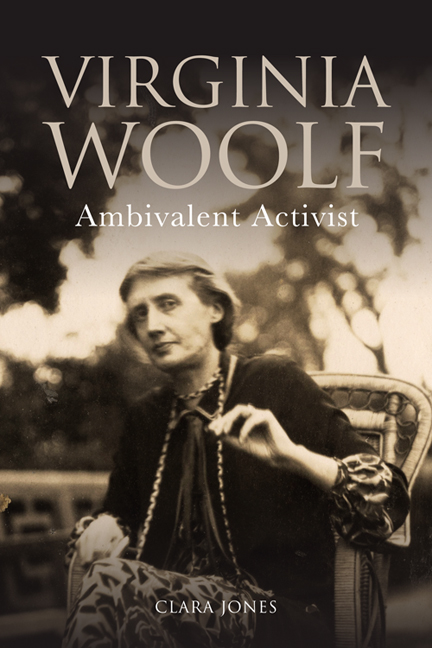Book contents
- Frontmatter
- Contents
- Acknowledgements
- Abbreviations
- Introduction
- 1 Virginia Stephen and Morley College, 1905–7
- 2 Virginia Stephen and the People's Suffrage Federation, 1910
- 3 Virginia Woolf and the Women's Co-operative Guild, 1913–31
- 4 Virginia Woolf and the Rodmell Women's Institute, 1940–1
- Conclusion
- Appendix 1 The ‘Morley Sketch’
- Appendix 2 The ‘Cook Sketch’
- Bibliography
- Index
- Frontmatter
- Contents
- Acknowledgements
- Abbreviations
- Introduction
- 1 Virginia Stephen and Morley College, 1905–7
- 2 Virginia Stephen and the People's Suffrage Federation, 1910
- 3 Virginia Woolf and the Women's Co-operative Guild, 1913–31
- 4 Virginia Woolf and the Rodmell Women's Institute, 1940–1
- Conclusion
- Appendix 1 The ‘Morley Sketch’
- Appendix 2 The ‘Cook Sketch’
- Bibliography
- Index
Summary
Would it be any use if I spent an afternoon or two weekly in addressing envelopes for the Adult Suffragists?
I dont know anything about the question. Perhaps you could send me a pamphlet, or give me the address of the office. I could neither do sums or argue, or speak, but I could do the humbler work if that is any good. You impressed me so much the other night with the wrongness of the present state of affairs that I feel that action is necessary. Your position seemed to me intolerable. The only way to better it is to do some thing I suppose. How melancholy it is that conversation isn't enough! (L1 421)
As this 1910 letter shows, Virginia Stephen understood that certain circumstances demanded action. This letter to Janet Case, offering help to the beleaguered adult suffrage cause, clarifies Virginia Stephen's familiarity with the mechanics of activism and shows that she understood the need for political action, not just that of others but specifically her own. This book is about Virginia Stephen's, and later Woolf's, political and social involvement and the nature of her attitudes towards this action. That this letter was written on 1 January 1910 makes Virginia Stephen's commitment to act – her modest desire to ‘do the humbler work’ – all the more compelling, as if it were part of a carefully considered new year's resolution.
Over the last thirty years a number of Woolf scholars have emphasised Woolf's politics by tracing the political engagements of her fiction and non-fiction texts. Berenice Carroll's 1978 essay on Woolf's political thought argued that her writing demonstrates a ‘consistent and intense concern with the political foundations of the social order’. In 1986, Alex Zwerdling challenged prevailing, aestheticist approaches to Woolf's work by taking the social vision of her writing as his point of departure. Hermione Lee's 1996 biography of Woolf placed new emphasis on Woolf's social and political awareness.
Woolf scholars continue to investigate the politics of Virginia Woolf's writing. Jane Goldman has explored Woolf's feminist aesthetics, while Melba Cuddy-Keane focuses on the pedagogic ‘social project’ and democratic aspirations of Woolf's essays.
- Type
- Chapter
- Information
- Virginia WoolfAmbivalent Activist, pp. 1 - 16Publisher: Edinburgh University PressPrint publication year: 2015



